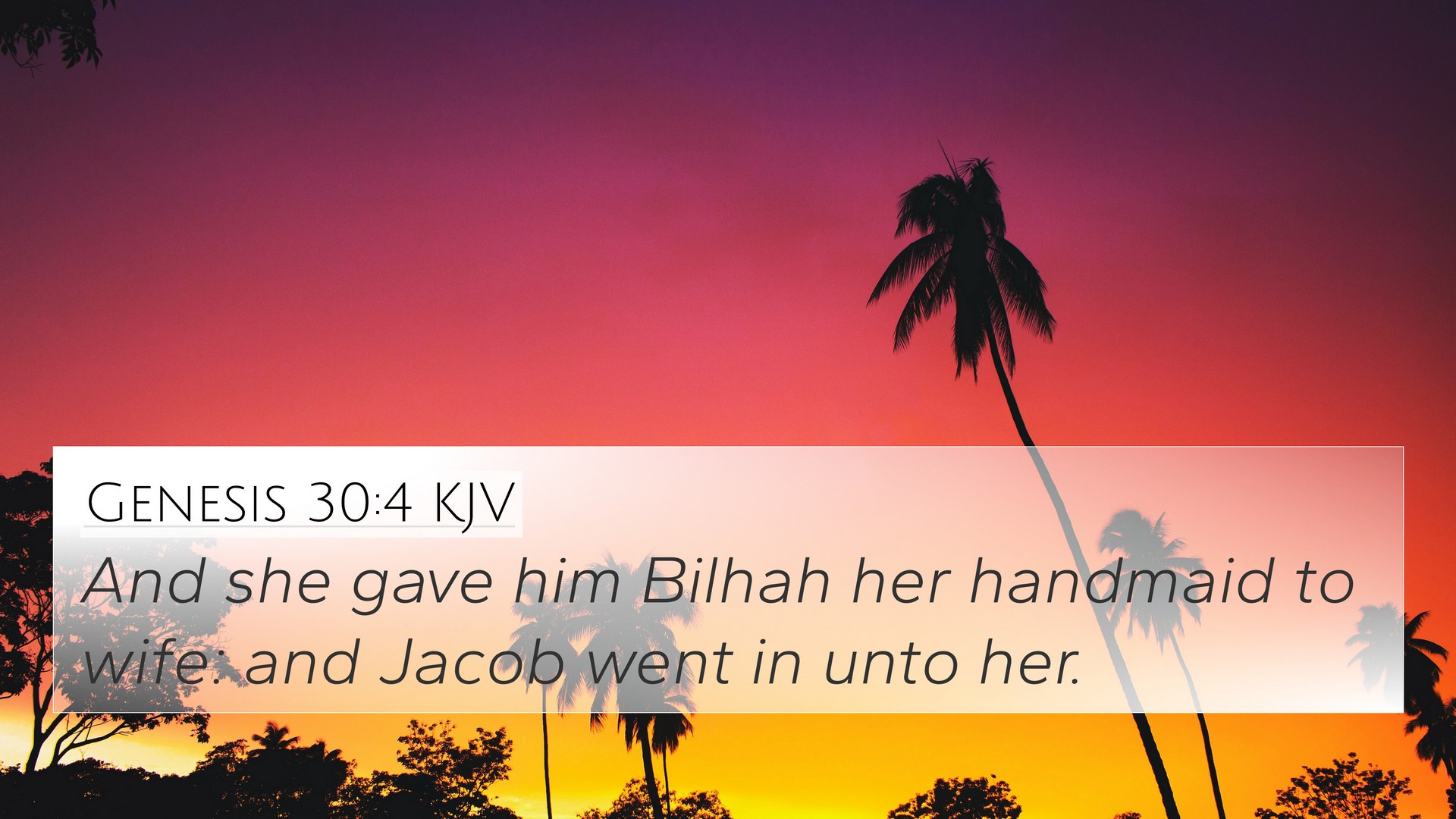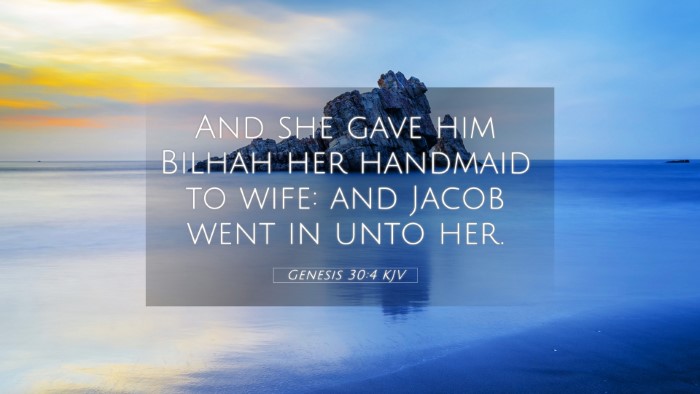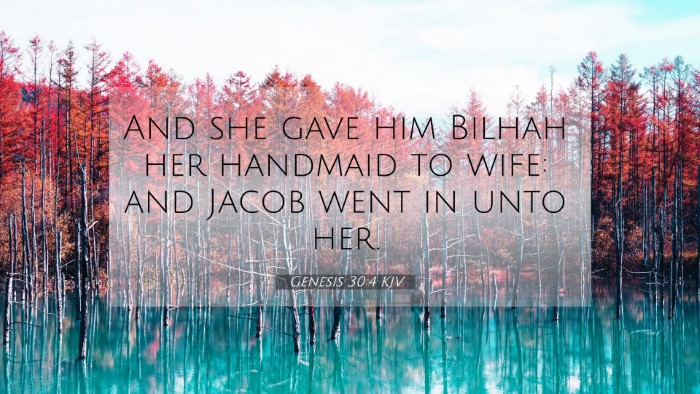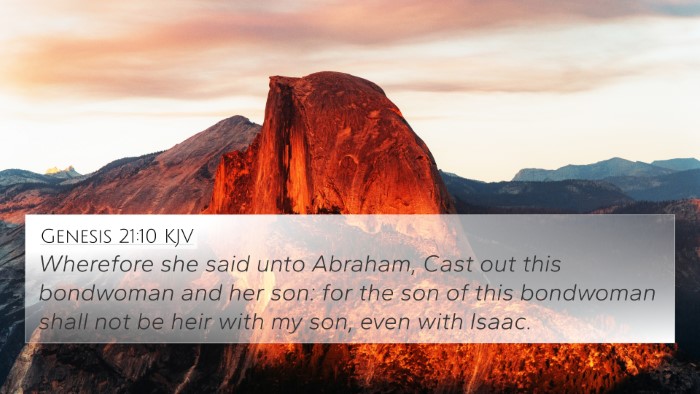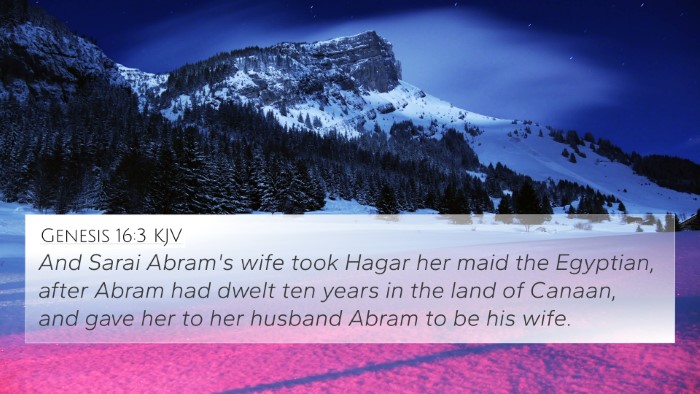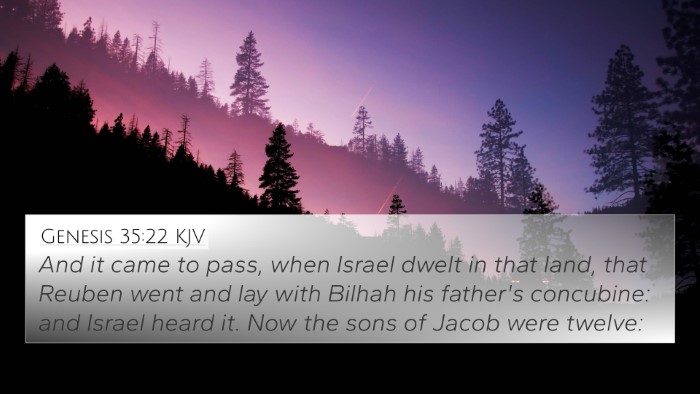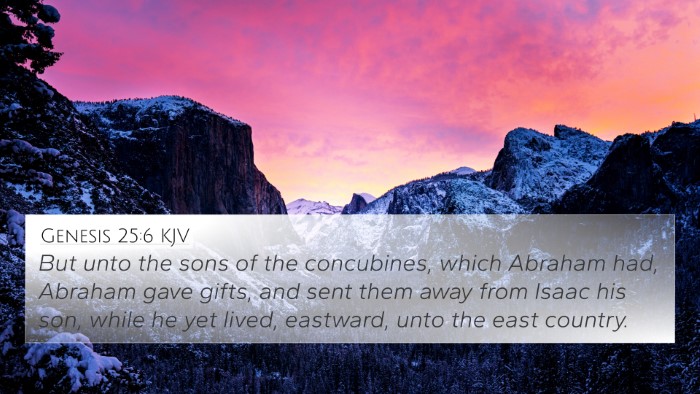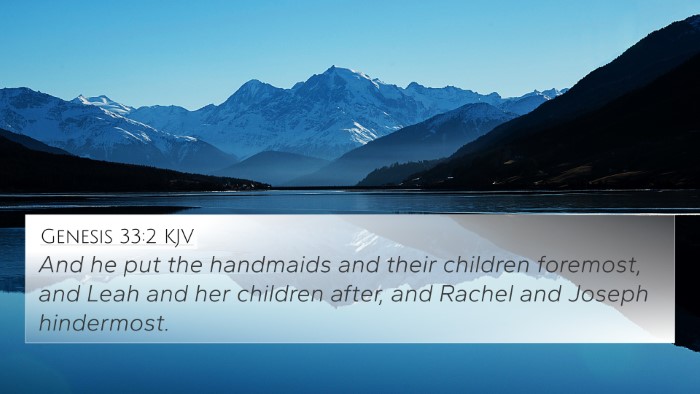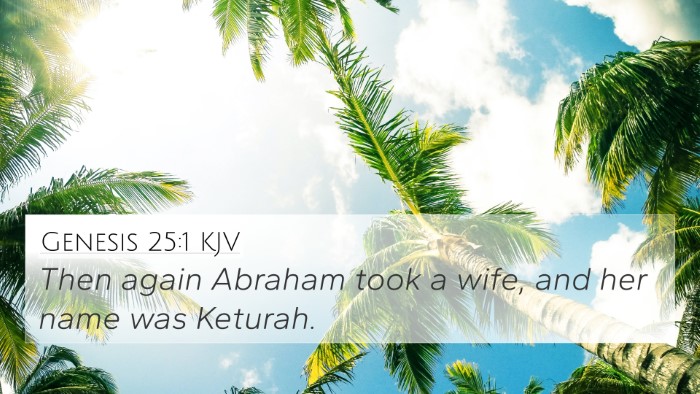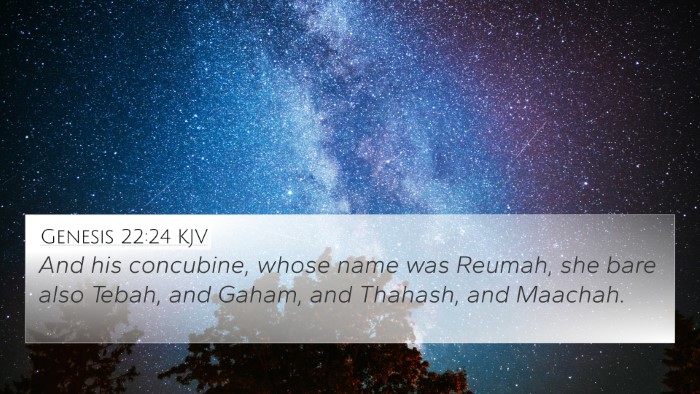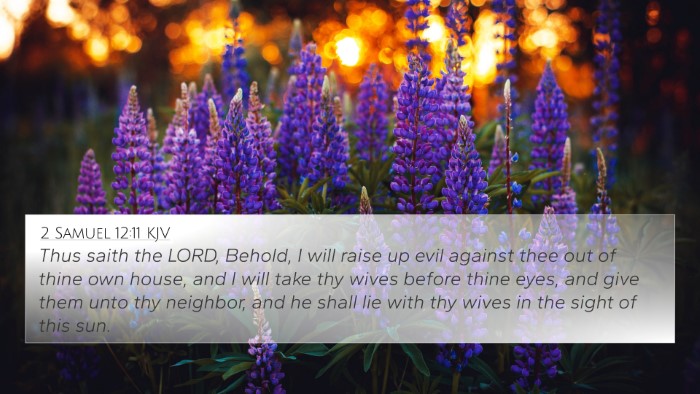Understanding Genesis 30:4
Genesis 30:4 reads: "And she gave him Bilhah her handmaid to wife: and Jacob went in unto her." This verse captures a defining moment in the narrative of Jacob, Leah, and Rachel, illustrating the complex dynamics of familial relationships, competition, and divine providence.
Summary of Genesis 30:4
This verse highlights Rachel's desperation to bear children for Jacob, leading her to give her maid, Bilhah, as a surrogate. This act demonstrates the cultural practices of the time, where a wife could provide a maid to bear children in her stead. It also sets the stage for themes of rivalry and jealousy that permeate this biblical account.
Insights from Public Domain Commentaries
Matthew Henry’s Commentary
Matthew Henry emphasizes Rachel's plight, portraying her barrenness as a source of deep anguish. He notes that her decision to offer Bilhah was a reflection of her faithlessness and impatience. Instead of waiting on God's timing, Rachel sought to control her situation through her own means. Henry also highlights how this act led to further complications in the family, indicating that human attempts to fulfill divine promises often lead to strife.
Albert Barnes’ Notes
Albert Barnes provides a detailed contextual analysis of the verse. He discusses the cultural implications of using a maid for childbearing, which was a legitimate practice in ancient times. Barnes points out that this act indicates not just Rachel's desperation but also a reflection of societal norms that allowed for such arrangements. He warns of the ethical dilemmas that arise from this situation, noting how it complicates the relationships within Jacob's family.
Adam Clarke’s Commentary
Adam Clarke expands on the significance of surrogate relationships in this verse. He positions Bilhah's role as both a servant and a bearer of children, suggesting that such practices reveal deeper issues of pride and rivalry. Clarke underscores that this event is pivotal in understanding the lineage of Jacob's children and foreshadows the tensions that follow within the family dynamics.
Thematic Connections to Other Bible Verses
The themes present in Genesis 30:4 resonate with various other biblical texts. Below are several cross-references that provide deeper insights into this narrative:
- Genesis 29:31-35 - This passage discusses Leah's bearing of children and her struggle for Jacob's love, paralleling Rachel's yearning for motherhood.
- Genesis 16:1-4 - Here, Sarah gives Hagar to Abraham, highlighting similar themes of barrenness and surrogate motherhood.
- 1 Samuel 1:2-20 - The story of Hannah, who similarly suffered from infertility and offered her son to the Lord, reflects Rachel's desperation.
- Isaiah 54:1 - This verse speaks to the joy of the barren woman, offering a prophetic lens on Rachel's longing.
- Galatians 4:22-31 - This New Testament reference draws thematic comparisons between Hagar and Sarah, echoing the struggles of Rachel and Leah.
- Matthew 1:2-16 - While showing Jesus' genealogy, this highlights the importance of Jacob's lineage, further connecting back to the events surrounding Genesis 30:4.
- Luke 1:13-17 - The announcement of John the Baptist's birth to Zechariah and Elizabeth shows divine intervention in situations of barrenness, similar to Rachel's longing.
Connections Between Bible Verses
The narrative around Genesis 30:4 provides a rich tapestry of interrelated stories throughout scripture. It illustrates how familial dynamics and personal struggles reflect larger themes of faith, providence, and human agency. For anyone exploring biblical connections, here are some tools for understanding:
- Bible Concordance: A tool to locate verses based on keywords and themes.
- Bible Cross-Reference Guide: Resources that help identify similar themes across different passages.
- How to Use Bible Cross-References: Approaches to effectively study interrelated verses.
- Bible Chain References: Systems that link verses according to shared themes.
- Comprehensive Bible Cross-Reference Materials: Resources for in-depth cross-referencing analysis.
- Identifying Connections Between Old and New Testament: Strategies to study biblical continuity.
Conclusion
Genesis 30:4 is more than just a historical account; it serves as a profound reflection on the human condition, the desire for progeny, and the intricacies of family relationships in biblical times. Understanding this verse and its connections can deepen one’s engagement with scripture and reveal timeless truths about faith and humanity.
In summary, exploring Genesis 30:4 through various commentaries and cross-references enriches one's understanding and sheds light on the continuing relevance of these ancient texts.
